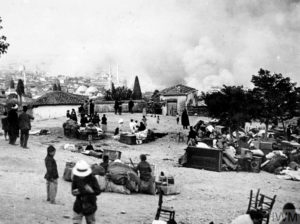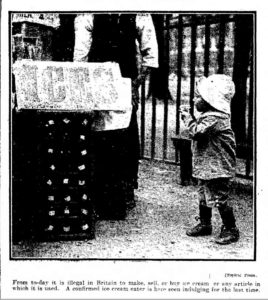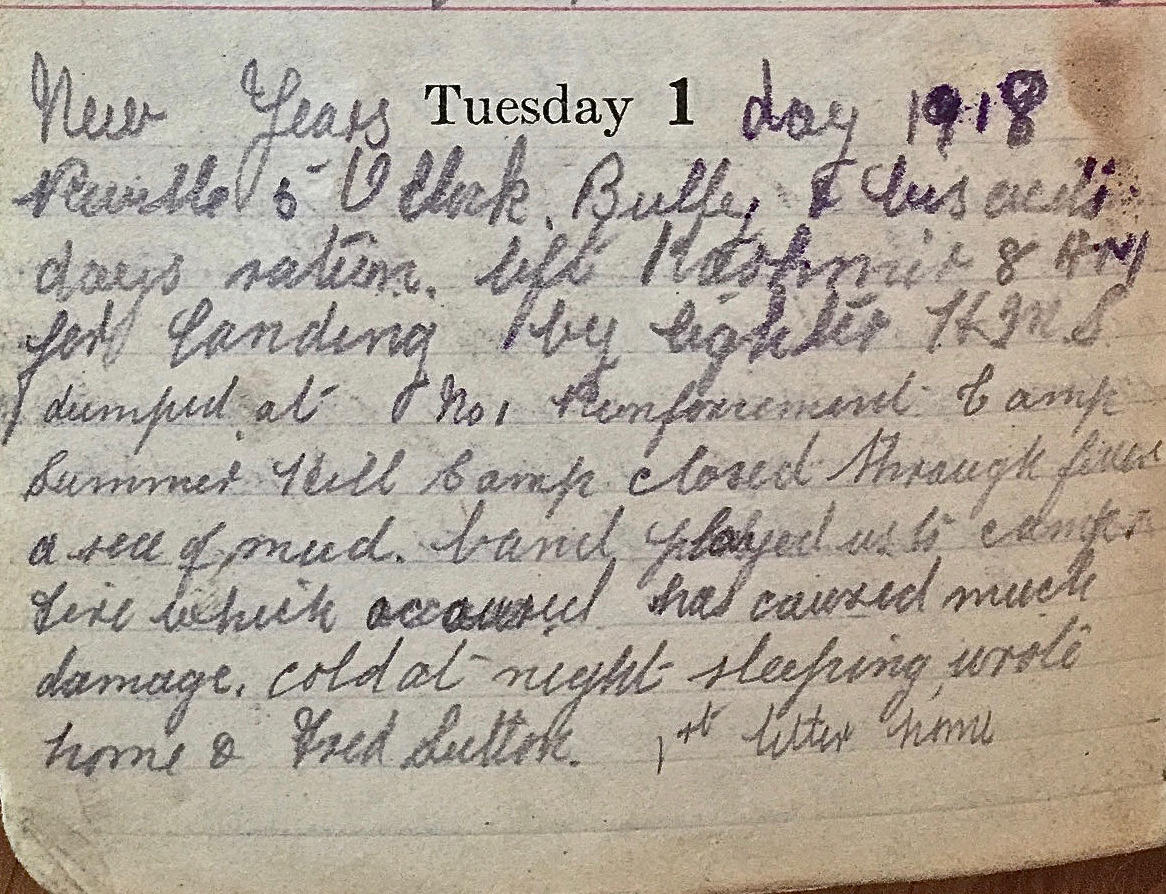Tuesday, Jan 1st, 1918
New Year’s Day
Reveille 6 o’clock. Bully & biscuits are day’s ration. Left Kashmir 8am for landing by lighter HMS. Dumped at Number One Reinforcement Camp. Summer Hill Camp closed through filled with a sea of mud. Band played us to camp. Fire which occurred has caused much damage. Cold at night sleeping, wrote home & to Fred Sutton. 1st letter home.
After 22 days on the HMS Kashmir, Frank disembarked and said goodbye to the ship for the last time on New Year’s Day, 1918.
Salonika was a vibrant, multi-ethnic city and the gateway to the region. Since Allied troops and supplies had started to arrive in October 1915 en route to the Macedonian Front, it had been booming.
By the time of Frank’s arrival, over two years later, a large network of camps had been established. They had become increasingly sophisticated and hutted accommodation was apparently a pleasant feature of many of the camps close to Salonica.¹ Unfortunately for Frank, the Summerhill Camp was mud-bound and he was back under canvas.
The Great Fire

The fire to which Frank makes a casual reference was the Great Fire of Thessaloniki. It had happened just a few months before Frank arrived. In August 1917, a small domestic fire had run unchecked and resulted in almost a third of the city of Salonika being destroyed and over 70,000 of its inhabitants made homeless.
British and French forces tried to limit the damage by helping the flow of fleeing refugees escape the city safely. These efforts included the Navy which rescued townsfolk stranded on the quay side. This photograph shows refugees with their salvaged possessions observing the blaze from a place of safety.¹
The damage to military property was also extensive. The British forces lost their headquarters, provost marshal’s office and post office. Many of the cities attractions and amenities had also been destroyed. Collinson Owen, editor of the soldiers’ newspaper “The Balkan News” reported that Salonika was now a “washed out” city, too extensively damaged to be repaired.
While this prophesy proved unfounded, the Fire irrevocably changed the make-up of the population of the city. A lot of the Jewish inhabitants, whose families had been there for centuries, were forced to leave as their livelihoods had been ruined.
Letter Home
Frank writes his first letter home today. Unfortunately he is to wait a long time to receive any letters from family or friends. This is possibly due to the loss of at least one ship carrying mail to the region in late 1917. Read more about the Postal Service in wartime.
The End of Ice Cream

Frank continues to bemoan his rations but the home front was equally challenged. Indeed the UK was just weeks away from compulsory rationing of many basic food stuffs. This photograph appeared in the Manchester Guardian on New Year’s Day – announcing that the production, purchase and sale of ice cream was now illegal. Chocolate had already been banned, just days before Christmas.
References and further reading:
^ image courtesy & copyright of Imperial War Museums
¹ ‘Under The Devil’s Eye. The British Military Experience in Macedonia 1915-18’ by Alan Wakefield and Simon Moody (Pen & Sword)
The Redesign of Thessaloniki after the Fire of 1917. Gerolympos, Alexandra Karadimou. University Studio Press Thessaloniki, 1995
Great Thessaloniki Fire of 1917, Wikipedia
* Guardian clipping 01/01/1918 on ice cream ban in UK. Copyright 2017 Newspaper.com


